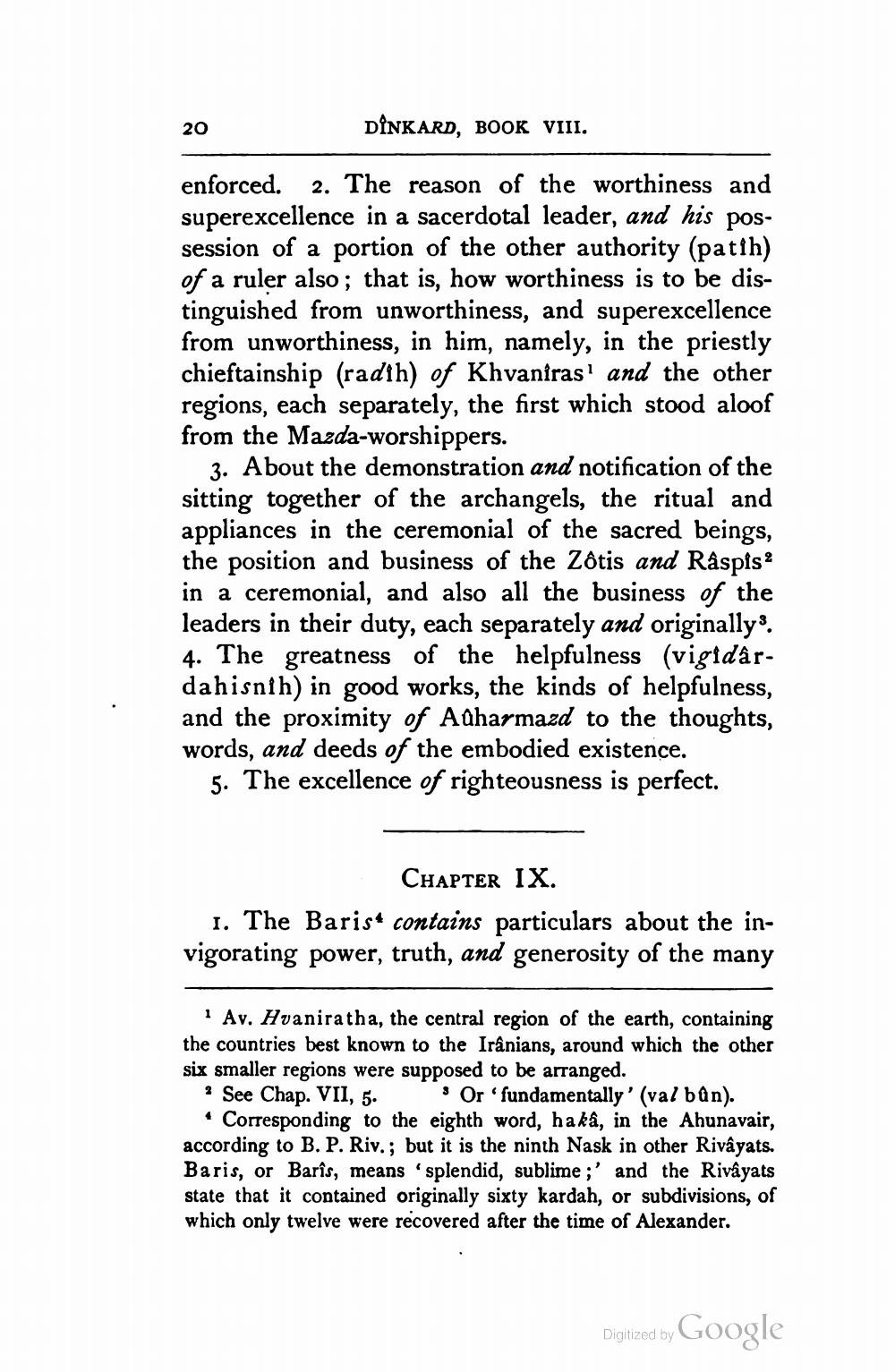________________
20
DINKARD, BOOK VIII.
enforced. 2. The reason of the worthiness and superexcellence in a sacerdotal leader, and his possession of a portion of the other authority (patih) of a ruler also ; that is, how worthiness is to be distinguished from unworthiness, and superexcellence from unworthiness, in him, namely, in the priestly chieftainship (radih) of Khvaniras' and the other regions, each separately, the first which stood aloof from the Mazda-worshippers.
3. About the demonstration and notification of the sitting together of the archangels, the ritual and appliances in the ceremonial of the sacred beings, the position and business of the Zôtis and Råspis 2 in a ceremonial, and also all the business of the leaders in their duty, each separately and originallys. 4. The greatness of the helpfulness (vigidardahisnih) in good works, the kinds of helpfulness, and the proximity of Adharmazd to the thoughts, words, and deeds of the embodied existence.
5. The excellence of righteousness is perfect.
CHAPTER IX. 1. The Barist contains particulars about the invigorating power, truth, and generosity of the many
1 Av. Hvaniratha, the central region of the earth, containing the countries best known to the Iranians, around which the other six smaller regions were supposed to be arranged.
? See Chap. VII, 5. Or "fundamentally' (val bûn).
• Corresponding to the eighth word, haka, in the Ahunavair, according to B. P. Riv.; but it is the ninth Nask in other Rivayats. Baris, or Barîs, means 'splendid, sublime ;' and the Rivâyats state that it contained originally sixty kardah, or subdivisions, of which only twelve were recovered after the time of Alexander.
Digitized by Google




